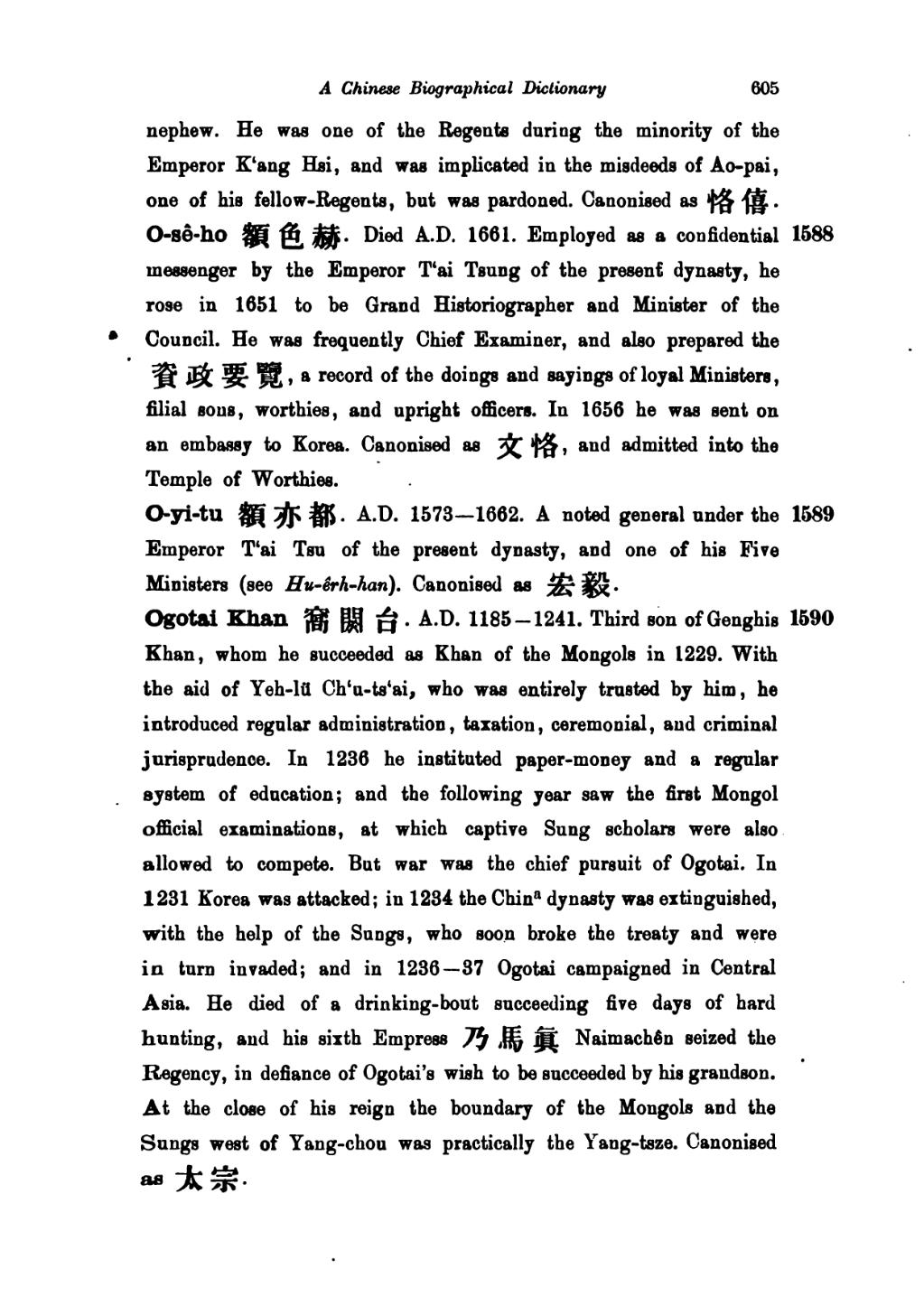nephew. He was one of the Regents during the minority of the Emperor E^ang Hsi, and was implicated in the misdeeds of Ao-pai, one of his fellow-Regents, but was pardoned. Canonised as ^ ^. 0-S6-h0 IK ^ ^. Died A.D. 1661. Employed as a confidential 1588 messenger by the Emperor T^ai Tsung of the present dynasty, he rose in 1651 to be Grand Historiographer and Minister of the Council. He was frequently Chief Examiner, and also prepared the ^ i§t ^ ^ f ^ record of the doings and sayings of loyal Ministers, filial sous, worthies, and upright oflScers. In 1656 he was sent on an embassy to Korea. Canonised as ^ ^ , and admitted into the Temple of Worthies.
O-yi-tu ^ :^ ^ . A.D. 1573—1662. A noted general under the 1589 Emperor T*ai Tsu of the present dynasty, and one of his Fi?e Ministers (see Hu-Srh^fian). Canonised as ^ ^ .
OgOtai Khan f^ g| l^ . A.D. 1185-1241. Third son of Genghis 1590 Khan, whom he succeeded as Khan of the Mongols in 1229. With the aid of Yeh-ltl Ch'u-ts^ai, who was entirely trusted by him, he introduced regular administration, taxation, ceremonial, and criminal jurisprudence. In 1236 he instituted paper-money and a regular system of education; and the following year saw the first Mongol official examinations, at which captive Sung scholars were also allowed to compete. But war was the chief pursuit of Ogotai. In 1231 Korea was attacked; in 1234 the Chin^ dynasty was extinguished, with the help of the Sungs, who soon broke the treaty and were in turn invaded; and in 1236—37 Ogotai campaigned in Central Asia. He died of a drinking-bout succeeding five days of hard hunting, and his sixth Empress 7^ ]^ ^ Naimachfin seized the Regency, in defiance of Ogotai's wish to be succeeded by his grandson. At the close of his reign the boundary of the Mongols and the Sungs west of Yang-chou was practically the Yang-tsze. Canonised

